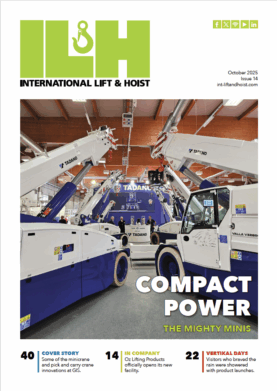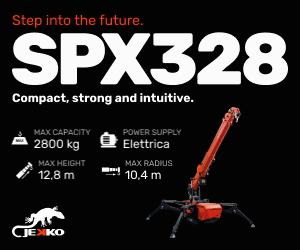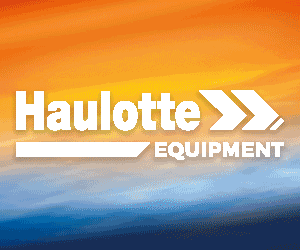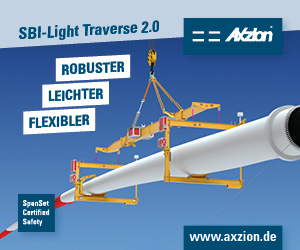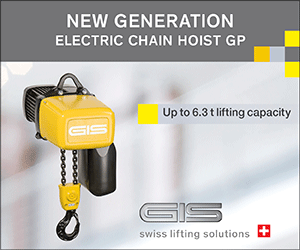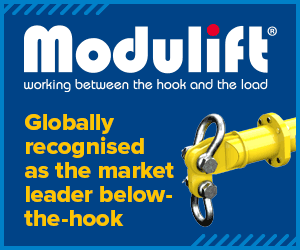)
Beware bureaucracy
Too much red tape and procrastination hinders progress, as the political merry-go-round proves, writes election day baby, Joel Cox.
Readers won’t need reminding that we’ve just had a significant election result here in the US. As a longtime globetrotter it never ceases to amaze me just how far and wide the ripples of such political change spread. It was the same with the recent UK general election; I was hearing about the various implications of one result versus another. In fact, in one conversation earlier this year, I witnessed a heated exchange about both the US and UK elections – and we were in mainland Europe.
I understand how elections can change lives, being an election day baby. On 2 November 1976, going into the night ahead of me being born the following day, it was finally announced that Democratic nominee, former Georgia governor Jimmy Carter, had narrowly defeated Republican president Gerald Ford. Notably, it was the first presidential election since 1932 in which the incumbent (currently holding office) was defeated.
I was still four years old when Republican Ronald Reagan took office as the 40th president of the US (from 1981 to 1989). My formative years were spent in a strong Republican household, and I remember hearing political stories and learning about certain values that my family held dear. Overall, I associate the Reagan years with a happy period of my life. Of course, there are others to whom this period would not be recollected so fondly – and that’s politics.
Fast forward to this year, and it was a case of history repeating itself in that the person on the winning side before, experienced defeat, similar to Gerald Ford, who was voted in but only for one term. As we know, Donald Trump won the latest election as the nominee of the Republican Party and is scheduled to be inaugurated as the 47th president on 20 January 2025. For months – years, even – prior to votes being cast, the election was a hot topic of conversation, whether I was in Germany, India, or Mexico. Every election during my career has provided memorable meetings and networking dinners, with people so eager to hear a US perspective on political wrangling.
Regardless of allegiance, we must strive harder to insulate ourselves from policy and maintain a bias towards proactivity, even when there is a temptation to batten down the hatches and wait for a political or economic green light. My mind goes back to the Reagan administration, which decided to make a change in imported textile regulations. The decision to tighten what were known as ‘rules of origin’ was claimed as a victory for domestic textile manufacturers.
But it was no instant fix. The industry was complaining that imports had been rising sharply, while domestic production was up only modestly. The fear was that higher import penetration would aggravate conditions for the industry during an economic downturn. By the 1990s, the sector was reeling and, with my roots in the Carolinas, I saw first-hand how policy and people struggled to find a balance – or solution – that helped. Multiple generations of my family had a legacy in the textile sector, and it was clear to them that this was an example of reactionary government policy that meant well but proved to be too little too late. There was a lot of spinning but going nowhere quickly.
Winds of change
Regardless of party policy and the extent of state influence or control that will be exerted on society after a transition of power, elections – and referendums (remember Brexit) – cause uncertainty, anxiety, and a general slowing of economic momentum. It becomes about posturing not action. Think about the wind energy market, for example, and the out-of-reach targets that the industry has been set by the previous US administration’s goal of 30GW of offshore wind alone by 2030. Think of that in these terms: 1GW is a unit of power equivalent to one billion watts.
There’s never enough about how strategy will be implemented from within the sector; during elections, we seem to lack the innovation and legislation that can actually get things done. Red tape is the death of progress, in my opinion. And we keep proving me right.
The recent pandemic has complicated this further too, because there’s a justification of hesitancy or caution. One step forward and two steps back is deemed to be okay, because the world didn’t end last time. Sadly, before the Covid era, the wind energy industry, much like many global economies, was on a healthy path upwards. Now, more than any other sector, wind is hanging in the balance, seemingly in an endless holding pattern, waiting for approvals and stamps to move forward. How do we meet the dizzy heights of targets spawned in government policy, if no emphasis is placed on action?
Older readers will remember the days where we could solve problems with healthy debate. In our latest election campaign, debates were non-existent. Imagine that being the case in the era of Carter, Ford, or Reagan – debate was central to their political careers. People formulated opinions based on those debates and how well they provided opposition or held those in office to account. In today’s world of pompous podcasts and finicky forums, leveraged on social media, there’s no room for debate. There’s this or that and people go looking for content that supports their theory. Algorithms help them along the way.
People tend to want the newest gadget and device, or popular new shoes. Just like the parties that we stand behind, loyalist ideas hold true, while fighting for what we think is right. There are loyalists everywhere, even in cranes or wind energy; we see people drawn to certain brands, even overlooking features to get the brand commonality they want. We see it in our business as well.
Not all loyalty should be scoffed at; it says something about human and societal nature as we prepare to enter another year. And we can harness it to get people pulling in the direction of progress.
As alluded to above, President Joe Biden (in 2022) signed into law the Inflation Reduction Act (IRA) guaranteeing billions of dollars of solar and wind subsidies for another decade as part of his broader effort to decarbonise the power sector by 2035 to fight climate change. It’ll be interesting to see how the situation evolves with reference to tariffs and widespread concern about imported products, largely from China. Truth is, wind energy has long since formulated a version of low cost wins; it is no longer about who has the technical know-how, or even the best design features.
Look at Goldwind as a trending company; it officially opened its first international factory in Camaçari, near Brazil’s northeastern state of Bahia. The former GE Renewable Energy plant could serve as a launchpad not just for Goldwind’s ambitions in Brazil but in the Americas generally, where it lays claim to having a larger footprint than any of its Chinese competitors.
The stage has very much been set for the industry’s next chapter.
Happy New Year!
Wheels in motion
I’ve always believed in New Year’s Resolutions.
Growing up, I would think of something that I could do to improve myself professionally or personally. Not that I’d take the process too seriously, and it’s a bit of fun to see how long one can last beyond the New Year hangover and stick to a fresh regime. My wife and I encourage our children to join us, to hold each other accountable. Hopefully it is now embedded as a longstanding tradition, as it was in my childhood home.
Just like governments and industries, there is always room for improvement. It’s not about reinventing the wheel but think of it as balancing the tyres, putting on a new tread, and making sure the vehicle runs true.
Collectively, I hope we see industry generally adapt in 2025 and move closer to the green pathway, motivated by realistic goals, while maintaining proven methods of best practice, generated by healthy conversation. My resolutions will certainly be aligned to these hopes.
If you’re stuck for your own New Year’s Resolutions, write down your highlights of the year just gone and imagine how they can be built on. I’ll reflect fondly on the new Dellner Wind Solutions website; our acquisition of Antec; and building tighter synergies between our global operations.
What highlights do you hope to be able to reflect upon in 12 months’ time?



